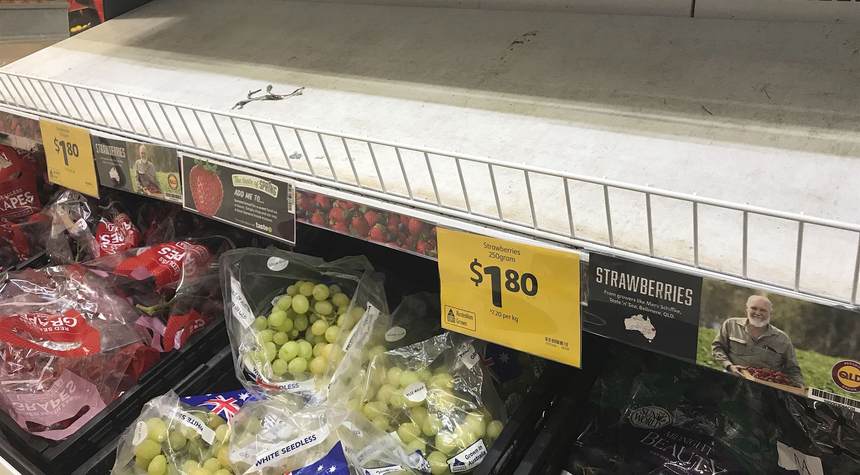Most people don’t know farmers personally, so it’s important to realize that most farmers don’t make a lot of money from producing food. Three bad years can follow a good one, as 2022 proved. Many American farms are at risk due to record heat waves here and abroad, droughts throughout the country, low fertilizer prices, and rising farm input costs. Continual food price rises and store shortages will affect everyone.
It is worse in Europe than in America’s agricultural outlook. Russia is refusing to ship any fossil fuels until sanctions are lifted, despite its commitment to a green energy suicide agreement on the continent. Farmers are abandoning their crops to die due to skyrocketing energy costs.
One Norwegian farmer’s tale is instructive. Odd Gjestvang, a vegetable farmer, is leaving his leeks to die in the field because it is too expensive to harvest and store them properly.
It is estimated that 29 tonnes of leeks have been lost. It is estimated to have a value of approximately 700,000. It has a gross value of approximately 700,000. Gjestvang says that this is food that should be harvested and cared for.
The family farms around 3,000 tonnes of vegetables every growing season. The leeks were normally stored in cold storage so they could be found on Norwegian vegetable counters. The farmer is not happy with the result.
Gjestvang doesn’t see it as economically sound to store vegetables at present electricity prices. He believes that it will result in a loss-making venture.
It’s easy to see why he feels that way. Gjestvang’s profits have been outpaced by the cost of energy subsidies in the Netherlands for farmers.
Gjestvang cools with around 80,000-kilowatt hours per month during high season. Gjestvang used to pay around [NOK] 24,000 per month for electricity. The price of electricity is almost 16 times higher now.
It will be NOK 400,000. This is the market as it stands now. He says it is impossible to achieve.
Norway’s largest vegetable producer has also considered storing vegetables in the fields for as long as possible after the autumn. It will cost too much to cool and store the vegetables in the normal way. One carrot farmer is already past the harvest date and believes that his harvest will only be suitable for “pig fodder”.
The largest producer of tomatoes in Sweden has also suspended operations for the winter crop. The price per kilowatt-hour has more than doubled and the winter crop is grown indoors. The winter crop’s production costs have increased tenfold over last season.
Peter Imanuelsen, a Swedish journalist, notes that these cuts in agricultural production are occurring while the Netherlands forces 11,200 farms to close in order to meet its climate goals. The Netherlands is the second largest exporter of food in the world, and this will cause a shortage in the continent’s food supply.
Germany was the biggest international buyer of Dutch bioproducts in 2021 (EUR26.3 Billion), followed by France (EUR8.6 Billion), Belgium (EUR12.1Billion), and the UK (8.6 billion).
The Netherlands’ most popular export item is ornamental plants and flowers. They will bring in approximately EUR12 billion by 2021. Together, the profits from dairy products, eggs, and meat are more than EUR25 billion.
Nearly all Western countries are currently working on ways to reduce nitrogen emissions. Plant growth is dependent on nitrogen. Hydroponic systems can still provide nitrogen for plants. To nitrogen-fix the soil, I plant peas each fall in my garden. The EU and Davos elites believe they have the answer to making agriculture more sustainable. Their arrogance makes them pro-scarcity and anti-science in 21st-century Lysenkoism.
The green power grab won’t be stopped by American farmers. The “Inflation Reduction Act” places farmers under the control and supervision of the EPA to regulate nitrogen emissions. It also allocates $20 billion for “climate-smart agricultural practices.” News from Europe allows us to predict how bureaucrats might use this money. It will be used by regulators to reduce meat production, particularly beef, and to lower food output through the restriction of fertilizer and fossil fuel energy.
Because their livelihood is dependent on conservation, farmers are among the most conservation-minded people you will ever meet. But, the West has shown no interest in listening to them.


